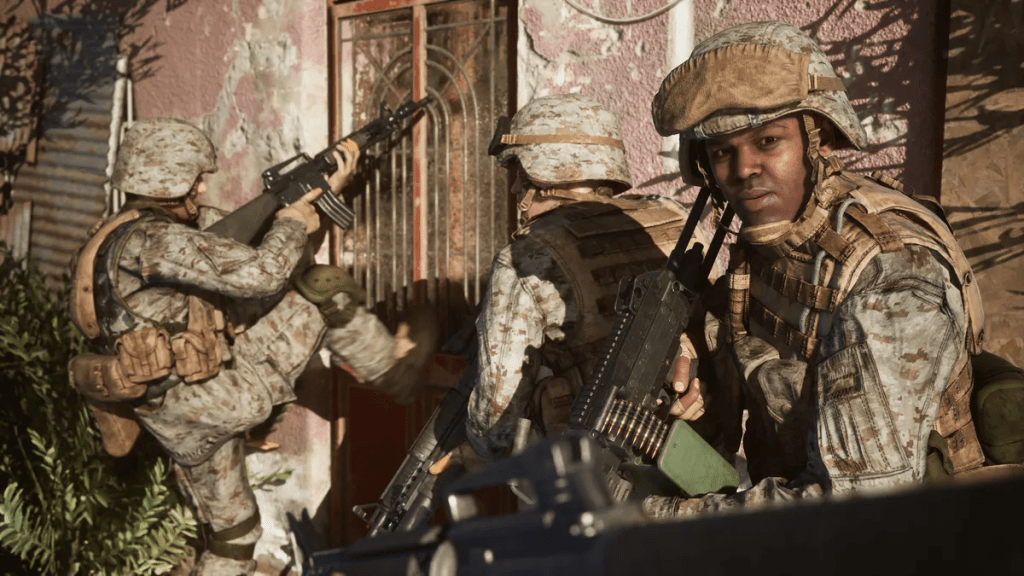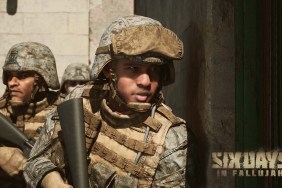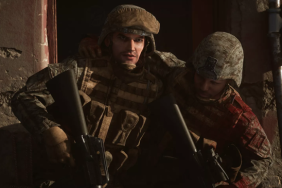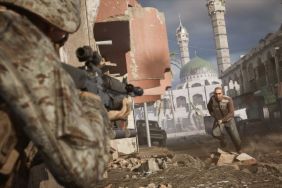A month after Six Days in Fallujah was revived and a number of controversial interviews with Victura CEO Peter Tamte, the publisher has released a statement on its official Twitter account in an attempt to clear the air. However, much of its statement goes against what Tamte has previously talked about in detail, including walking back commentary about the game’s political nature and portrayal of war crimes, specifically white phosphorous. You can read the full statement from Victura below:
We understand the events recreated in Six Days in Fallujah are inseparable from politics. pic.twitter.com/N7nkPilp1Q
— Victura (@VicturaGG) March 8, 2021
Here’s the full text of the statement from the image:
We understand the events recreated in Six Days in Fallujah are inseparable from politics. Here’s how the game gives voice to a variety of perspectives:
The stories in Six Days in Fallujah are told through gameplay and documentary footage featuring service members and civilians with diverse experiences and opinions about the Iraq War. So far, 26 Iraqi civilians and dozens of service members have shared the most difficult moments of their lives with us, so we can share them with you, in their words.
The documentary segments discuss many tough topics, including the events and political decisions that led to the Fallujah battles as well as their aftermath. While we do not allow players to use white phosphorus as a weapon during gameplay, its use is described during the documentary segments.
During gameplay players will participate in stories that are given context through the documentary segments. Each mission challenges players to solve real military and civilian scenarios from the battle interactively, offering a perspective into urban warfare not possible through any other media.
We believe the stories of this generation’s sacrifices deserve to be told by the Marines, Soldiers and civilians who were there.
We trust you will find the game—like the events it recreates—to be complex.
The statement from Victura attempts to distance itself from comments made by the company’s own CEO, Peter Tamte, in a number of interviews with various gaming news outlets. Most notably, Tamte had said that the game wasn’t interested in trying to make a political commentary, yet this statement from Victura seems to walk that back and at least acknowledge that the game’s subject matter is “inseparable from politics.” However, it then goes on to justify it by saying the game will give voice to a “variety” of perspectives, which doesn’t get at the criticisms that the game will try to paint the US military’s part in this event as a whole lot rosier than it actually is.
Tamte had also previously said that Six Days in Fallujah would not include white phosphorus due to not having “an authentic, factual basis on which to tell that” and that he didn’t want “sensational types of things…to distract from the human stories that we can all identify with,” however this statement says that white phosphorus will be described during the documentary segments, which seems once again to contradict Tamte’s comments made during interviews.
Victura’s statement stops far short of taking any kind of stance on the Iraq War and the Second Battle for Fallujah, despite even service members who were a part of it deriding the whole campaign as pointless, illegal, and filled with unnecessary loss of life for both Iraqi civilians and US forces. Most importantly, Victura won’t acknowledge the wrongdoing of the US within any of it statements, and it remains to be seen if the game can actually get as complex as the publisher claims. Victura previously had to defend Six Days in Fallujah against allegations that it is a US military recruitment tool, though with statements like “mission challenges players to solve real military and civilian scenarios from the battle interactively,” the jury might still be out on that one.
There have also been criticisms that so far, Iraqi voices have not been heard talking about this game. The re-reveal trailer focused on the US forces and horrors that happened to them, and every angle seems to slant towards the “military heroes,” not the terror endured by the Iraqi civilians by military forces who committed war crimes. While Victura keeps telling us there is a nuanced Iraqi perspective within the game, we have yet to see it.
Victura’s statement seems to be a bit of damage control to walk back some of Tamte’s controversial comments from last month. The messaging coming from the publisher seems to be disorganized at best, despite the sensitive nature of the topic that should have had a firmer stance out of the gate considering the controversy the title faced when it first came up a decade ago. Whether or not Six Days in Fallujah lives up to its promises of being “complex” remains to be seen, but Victura’s statement still doesn’t give us much hope that it will have anything meaningful to say.








